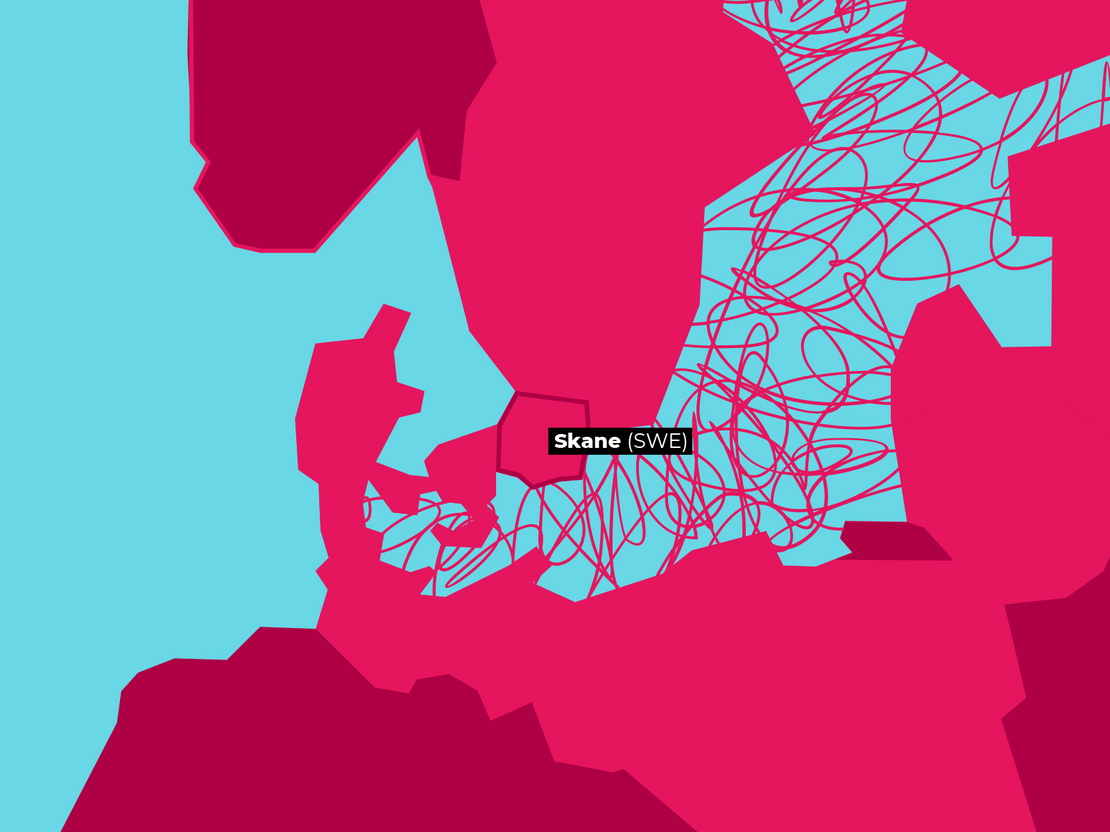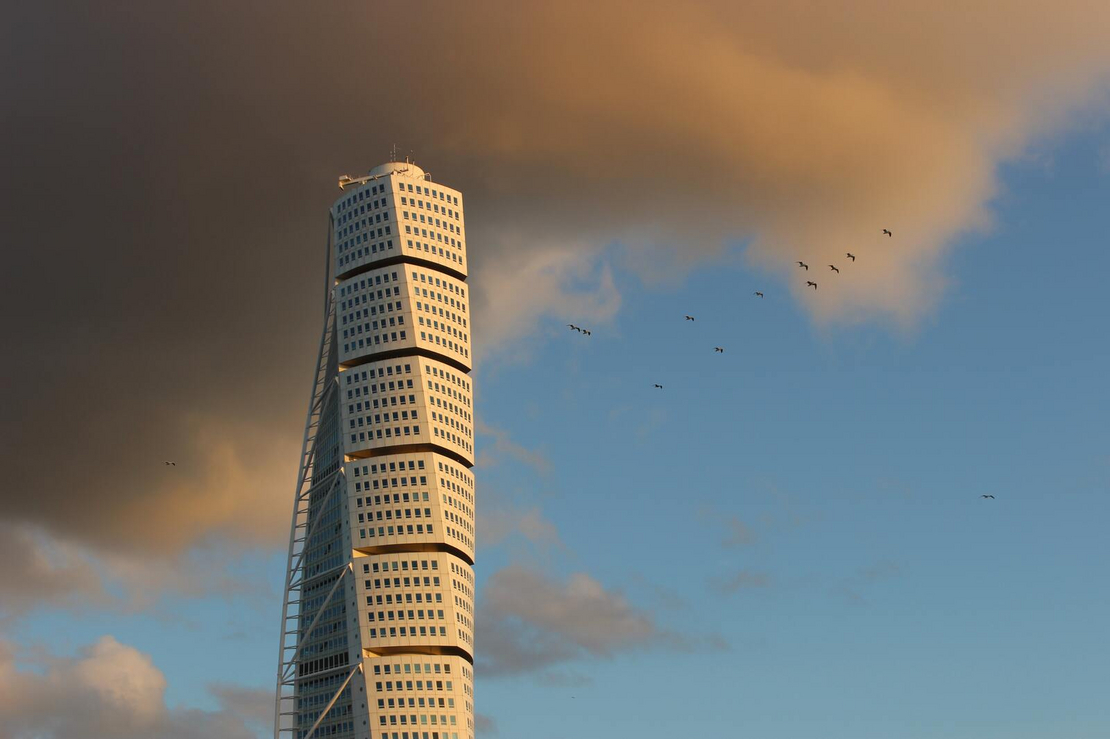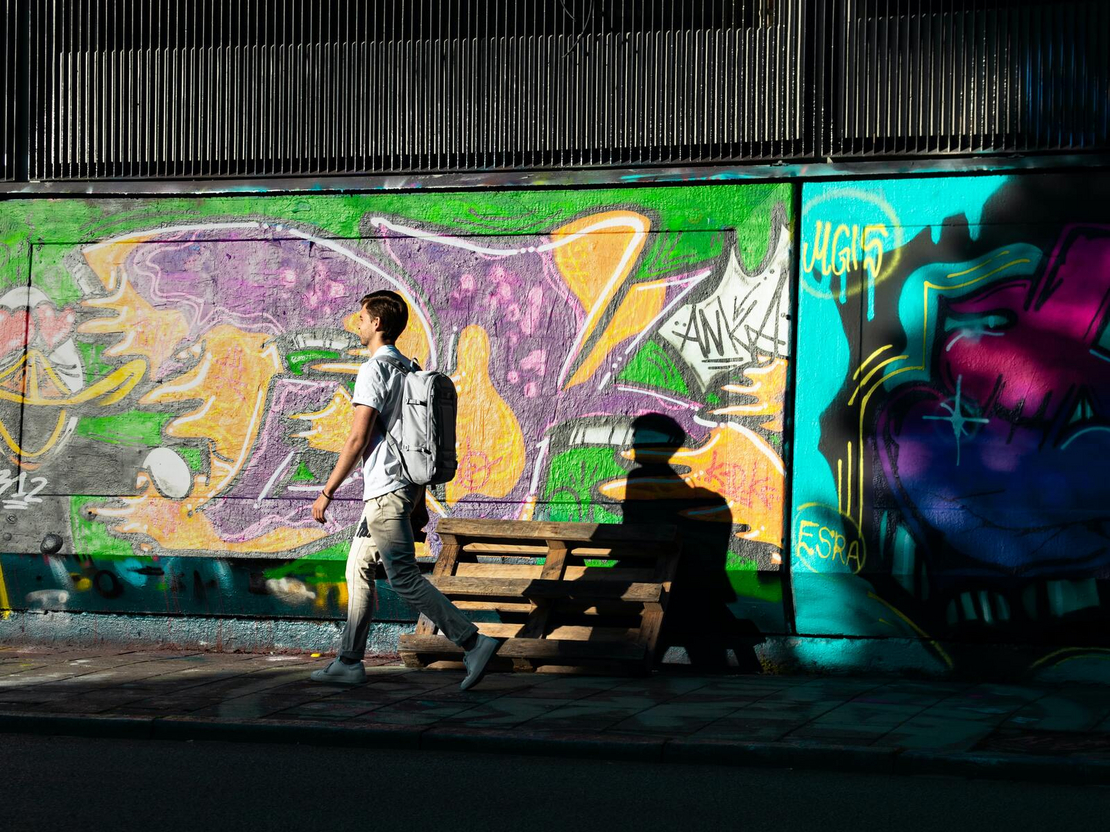Skåne Region, Sweden
| NUTS code | SE22 |
|---|---|
| Population | 1.36 Million |
| Area in km² | 13.968 km² |
| GDP/inhabitant (year) | 370.000 SEK (2016) |
| GDP growth rate (year) | 2.5% (2016) |
| Unemployment rate (year) | 7.1% (2018) |
| Cohesion Policy category | More developed region |
Number of support organisations in the region: 10
Global creativity index – GCI, country level: 0.923 (2015)
Regional Entrepreneurship Development Index – REDI: 65.8 (2017)
1. Introduction
In 2009, the Ministry of Culture and the Ministry of Enterprise, Energy and Communications increased cooperation on issues relating to creative industry with a significant part of the national funding for culture was transferred to regional governments. This cooperation is supported by the Council for Cultural and Creative Industries in its work with the national work plan on cultural and creative industries. Under the Cultural Cooperation Model, the Swedish Arts Council acts as a representative of the national government in approving the Cultural Policy Plans of the regional governments for national funding. Sweden has no single official definition of the creative industries. The most commonly used approach originates with The Knowledge Foundation (KK-stiftelsen) and includes architecture, computer and TV games, design, film, photography, the arts, literature, the media, market communication, fashion, music, cuisine, scenic arts, tourism and experience based learning.
The definition of cultural and creative industries was originally developed by Region Skåne together with Sweco for the report entitled Cultural and Creative Industries 2016. The number of industry groups has been increased from seven to eight by Architecture being broken out of Form, design and fashion. Incidentally, "Culture and experience" includes libraries, archives, museum activities and cultural heritage institutions with amusement parks and botanical gardens are included in this industry group. The industry group "Literary and artistic creation" brings together individual artists and writers. "Moving image, film and photo" includes photo and film. The industry group "Media" covers all types of media such as printing, publishing of books, radio and advertising. "Performing arts" gathers activities such as music, dance and circus and finally "Game development" includes publishing computer games.
2. General information about Skåne Region
Much more than on the national level, cultural and creative industries tend to focus on the local, and to some extent on the regional, level. Such efforts are often guided by the notion of cultural planning, focusing on mapping and making use of all of the cultural resources available in the local cultural life. Especially noted for such efforts are, for example, Malmö City and the regional government of South Småland. Region Skåne has among other things, adopted an action plan for the period 2014-2020, which states that Skåne should have the best conditions for cultural and creative entrepreneurs to be able to develop their business ideas successfully.
3. Economy
In 2013, the cultural and creative industry in Skåne represented 2.1% of the total business sector turnover, which corresponds to SEK 18.3 billion. Of the cultural and creative industries turnover, Media accounts for more than half (58%) of Skåne's total turnover for that year. In addition, form, design and fashion make up sales of 24%. In Sweden, the copyright-intensive industries’ contribution to the national GDP was 5.4 % and their contribution to the total employment was 5.3 % in 2010. The export of creative goods was 1.7 % of the total export and 0.82 % of the total GDP in 2012.
4. Regional business eco-system
With organizations like Southern Sweden Creatives, Region Skåne program for clusters, The Conference, The Festival, Malmöfestivalen. The operational field of the horizontal CCI support organizations varies from grant giving to e.g. support of artists, promotion of interest of particular creative industry sectors and promotion of cultural exchange and development of interaction between contemporary art and public spaces.
Types of support
Sweden has a large number of CCI sub-sector specific organizations, aiming to support the interests, rights and businesses of the creative actors and companies. Their activities include e.g. copyright protection, networking, funding, grant giving, and awareness raising. Some of these organizations operate also as trade unions, international co-operation platforms or as umbrella organizations for smaller operators.
Types of support
Sweden has a large number of CCI sub-sector specific organizations, aiming to support the interests, rights and businesses of the creative actors and companies. Their activities include e.g. copyright protection, networking, funding, grant giving, and awareness raising. Some of these organizations operate also as trade unions, international co-operation platforms or as umbrella organizations for smaller operators.
5. CCI in the region - Overview of the role of CCI sector in regional business
The Regional growth strategy refers to CCIs and tourism as examples of areas that can connect industries, skills and knowledge in new ways, in order to create added aesthetic, social and environmental value. Furthermore, the strategy acknowledges CCIs as drivers of a sustainable society and as an area for prosperity and job creation. In respect to the innovation system Media Evolution is an innovation centre for media development, providing incubation services open to several fields of business, having sector expertise in creative, cultural and digital industries. The hub has a specialty in start-ups in the cultural sector and open innovation with industry.
CCI support and development system
As for the support for companies, the Swedish Agency for Economic and Regional Growth (Tillväxtverket) is a national authority aiming to promote sustainable industrial development and regional growth, to strengthen the companies’ competitiveness and implementing the EU Structural Fund programs. It is running e.g. a program that aims to support the development of the CCI sector by facilitating the dialogue and cooperation between organizations, authorities, business advisors and industry associations. In addition, this program aims to increase awareness of the regional authorities to obtain official statistics on CCIs, and to develop the methods of information, support and funding targeted to culture-based entrepreneurship. Creative industries is one of the eight industry focuses of the Business Sweden and it offers skills enhancement initiatives for internationalization. The Business Sweden focuses on computer games, film, music, fashion, design, marketing communication and literature.
6. Knowledge base and skills
Higher arts and culture related education is provided by government funded universities and university colleges. For example in the area of Skåne there is Malmö University providing artistic education.
Project Cultural and Creative Spaces is organising different training courses for CCIs (Urban Lab Region Skåne).
Lund university offers a Master of Science programme - Service Management, Culture and Creativity Management. The programme allows to build managerial skills for creative businesses.
7. Regional CCI development outlook
The region’s CCI sector is strongly internationalized. According to experts, cross-sectoral knowledge best practice exchange with other countries/regions is key to overcome possible threats the ССI industry might face. The crucial aspect for CCI is to increase the reach of the audience, recruit more talents and find new markets including international. The region of Skåne has several funds based on philanthropy. Those could however have a great impact on the regions CCI onwards.
The gaming industry is big and promising in Southern Sweden. It is needed to continue to offer education in this sphere in order to build a strong global market for gaming.
Networking and access to new markets through networking is key for many CCI in the region.






